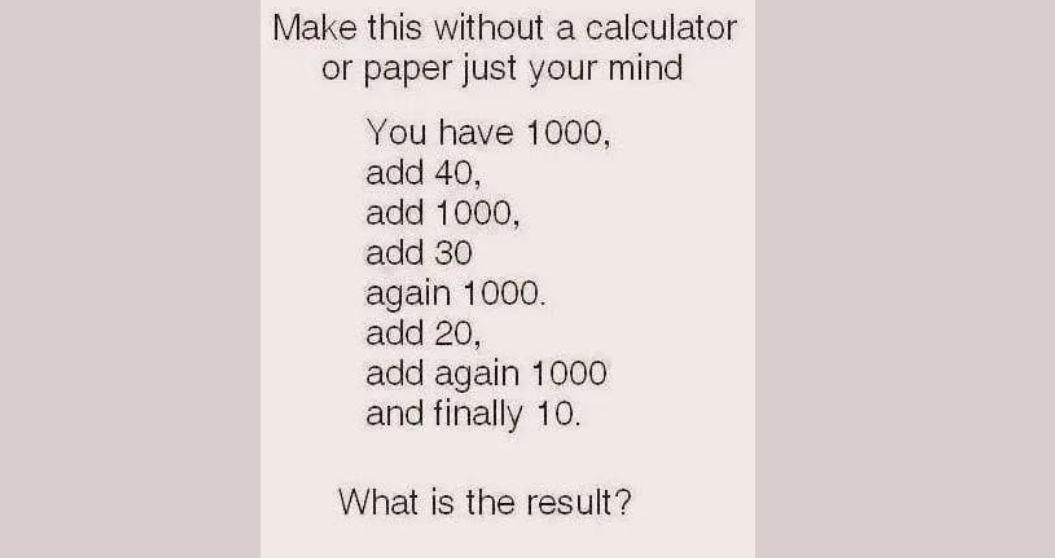Have you ever stopped to think about the incredible capabilities of your brain? Our minds are wired to perform complex calculations and tasks, yet we often rely on external tools like calculators to solve simple math problems. This article introduces a fascinating puzzle that will challenge you to rely solely on your mental abilities to solve it.
The puzzle is straightforward: start with 1000, add 40, then 1000, followed by 30, another 1000, 20, a final 1000, and finally 10. Most people quickly tally up the numbers and assume the total is 5000. However, the correct answer is actually 4100. So, what goes wrong?
The key to solving this puzzle lies in breaking down the calculation step by step. By doing so, you’ll avoid the common mistake of rushing through the numbers and skipping over smaller details. Let’s calculate it slowly and deliberately: 1000 + 40 = 1040, 1040 + 1000 = 2040, 2040 + 30 = 2070, 2070 + 1000 = 3070, 3070 + 20 = 3090, 3090 + 1000 = 4090, and finally, 4090 + 10 = 4100.
So, why do so many people get tripped up by this puzzle? The answer lies in the way our brains process information quickly, often relying on cognitive shortcuts that can lead to errors. When we perform rapid calculations, our brain tends to group numbers in a way that can lead to mistakes. In this case, the mind often registers the sum of all the 1000s (which would total 4000), and then quickly adds 40, 30, 20, and 10, but often ends up overshooting and arriving at 5000.
This phenomenon is known as cognitive overload. When we try to mentally juggle too much information at once, we start to rely on assumptions and shortcuts rather than precise calculations. The more numbers we add, the more our mind tries to simplify the process—and that’s where mistakes happen.
To avoid errors like this in the future, it’s essential to break down calculations into smaller steps and double-check each stage of the process. Here are a few tips to sharpen your mental math skills: visualize the numbers, practice with smaller numbers, stay calm, use estimation, and practice regularly.
Engaging in puzzles like this one not only strengthens cognitive function but also improves concentration and enhances problem-solving abilities. Regularly challenging your brain with exercises like mental math can also reduce the risk of cognitive decline as you age. So, the next time you’re tempted to pull out your phone’s calculator, give your brain a chance to do the work instead.


